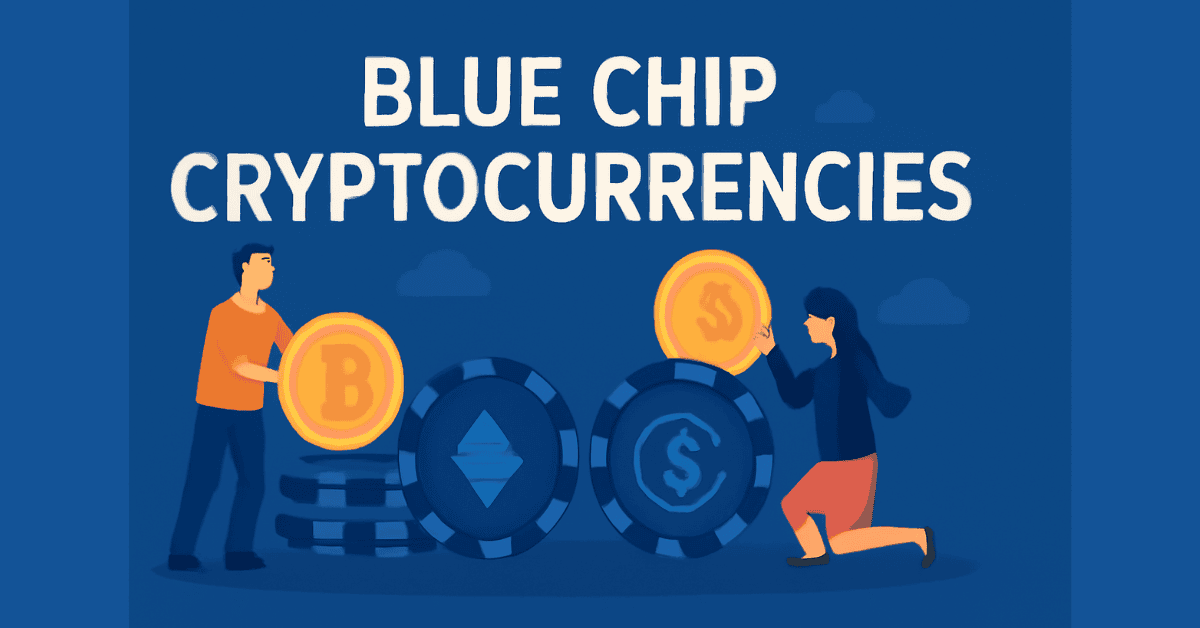
Blue Chip Cryptocurrencies: A Comprehensive Guide
1. The Concept of Blue Chip in Traditional Finance and Cryptocurrency
Blue Chip is a term used to describe large, reputable companies with a stable operating history, often leaders in their respective industries. These companies typically have high market capitalization, sustainable profits, and strong resilience against economic fluctuations. When applied to the cryptocurrency sector, Blue Chip refers to leading crypto projects or assets that have established their position, possess high liquidity, and are widely recognized by the community. They usually have a large market capitalization and serve as the foundation for many other applications.
2. Criteria for a Project to Become a Blue Chip Coin
For a cryptocurrency to be considered a Blue Chip, it must meet the following criteria:
- High Market Capitalization and Trading Volume: These indicate stability and high liquidity. Blue Chip projects are typically among the top cryptocurrencies by market cap.
- Reputation and Stable Development History: The project must have been operating for a sufficient period, demonstrating continuous operational and developmental capabilities without encountering significant security issues or technical failures.
- Real-World Utility and Application: A Blue Chip Coin is not merely a speculative asset but also holds intrinsic value within its ecosystem, serving purposes such as payments, decentralized application (dApp) development, or acting as a platform for other projects.
- Reputable and Transparent Development Team: The project is led by an experienced team with a clear development roadmap and regular community engagement.
3. Typical Examples of Blue Chip Coins
In the cryptocurrency market, some prominent names considered Blue Chips include:
- Base Layer Cryptocurrencies: Bitcoin and Ethereum are the most quintessential examples, serving as the backbone of the market.
- Exchange Cryptocurrencies: Coins linked to major exchanges, providing utility within the exchange's ecosystem.
- Decentralized Finance (DeFi) Assets: Leading DeFi projects with high Total Value Locked (TVL) and widespread adoption.
- Layer 2 Scaling Solutions: Solutions that improve transaction speed and reduce costs for underlying blockchains.
- Stablecoins: Price-stable currencies, pegged to real assets like the US Dollar, playing a crucial role in value preservation.
- Blue Chip NFTs: Famous NFT collections with high value and sought after by collectors.
4. Should You Invest in Blue Chip Coins?
Investing in Blue Chip Coins can be an attractive option, especially for new investors or those seeking stability:
- Advantages:
Stability: Less volatile compared to smaller market capitalization assets.
Long-term Growth Potential: Historically, these projects tend to show sustainable growth over time.
High Liquidity: Easy to buy and sell on exchanges.
- Risks:
Slower Growth: May not yield explosive returns like newer projects.
Market Volatility: Although more stable, they are still influenced by overall cryptocurrency market trends.
Regulatory and Competitive Risks: Always carries inherent risks from changing regulations or the emergence of new competitors.
Investors should conduct thorough research, diversify their portfolios, and regularly monitor the market to make informed decisions.